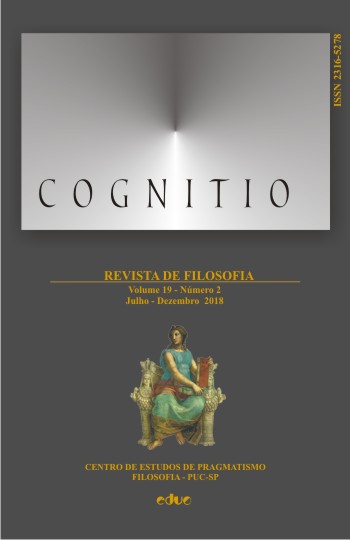A Peircean perspective on human voice: the semiotic nonagon of the uses of voice
DOI:
https://doi.org/10.23925/2316-5278.2018v19i2p258-269Keywords:
Applied semiotics, Performing arts, Pragmatics, Semiotic nonagon, VoiceAbstract
The human voice is a widely studied phenomenon that has been approached from a large number of disciplines, ranging from medical specialties to the performing arts. Albeit enriching, this variety of perspectives has conspired against the formulation of a common conception of the voice and a framework that might help to understand voice-related phenomena in more general terms, emphasizing continuities and relationships rather than having to redefine the object of study according to the conceptual tools and methodologies of each discipline. Peirce’s semeiotic offers an alternative to this fragmented landscape of voice studies, especially through his taxonomy of signs related to the phaneroscopic categories. The semiotic nonagon (Guerri, 2003, 2014 y 2016) is an operative model that in adopting the form of a diagrammatic icon, assists in applying Peirce’s categories to the analysis of concepts, objects or disciplines in general. Using the semiotic nonagon as a methodological tool, this paper offers a way to analyze, describe and categorize according to logical criteria the many uses of human voice. It is hoped that the insights gained from the relationships between radically different uses of the voice will help reduce redundancy and provide new directions for research in other disciplines, as well as serve potential pedagogical and analytical needs in the arts and other disciplines (e.g., linguistics, cultural studies).Downloads
Published
2019-02-01
How to Cite
Llobet Vallejos, J. P., & Stocco, P. A. (2019). A Peircean perspective on human voice: the semiotic nonagon of the uses of voice. Cognitio: Revista De Filosofia, 19(2), 258–269. https://doi.org/10.23925/2316-5278.2018v19i2p258-269
Issue
Section
Cognitio Papers









